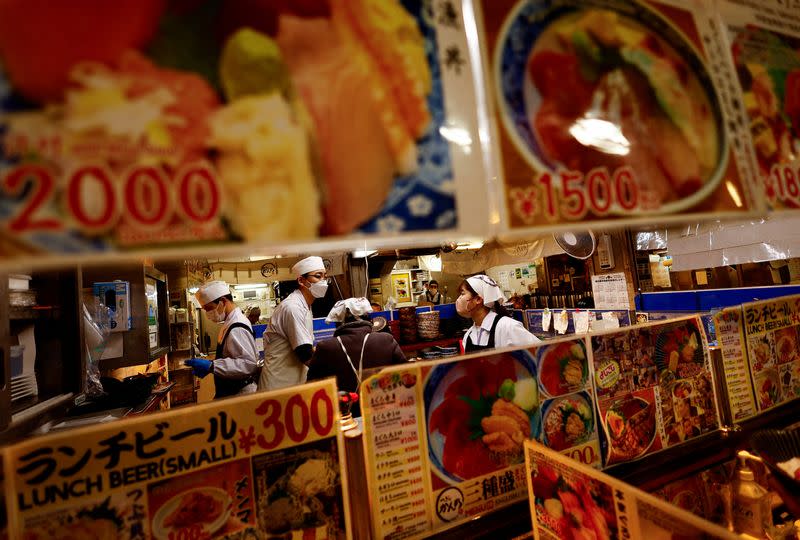Japan's service activity slips for first time in 2 years, PMI shows
TOKYO (Reuters) - Japanese service activity contracted for the first time in nearly two years in June as domestic demand cooled, a private sector survey showed on Wednesday, although business confidence and hiring indicators remained upbeat.
The service sector has been propelling economic growth in Japan, offseting feeble manufacturing performance.
The final au Jibun Bank Service purchasing managers' index (PMI) slipped to 49.4 in June from 53.8 in May, snapping 21 straight months of expansion, the S&P Global Market Intelligence survey showed.
The PMI was weaker than the flash reading of 49.8, which was the first reading below the 50.0 threshold separating expansion from contraction since August 2022.
The decline of new business in June marked a pause in growth instead of an outright drop in demand, said Trevor Balchin, economics director at S&P Global Market Intelligence.
"Looking beyond the headline figure, the picture is less concerning," Balchin said.
Demand in consumer services, finance and insurance, and real estate and business services dropped whereas transport and storage, and information and communication saw increases in June, the survey showed.
The weak yen, which has fallen more than 12% this year, also propped up overseas demand for Japanese services.
Although at a slower pace, employment growth and business confidence in the next 12 months remained relatively robust.
Meanwhile, a combination of wages, food and fuel and the weaker yen drove up input prices, contributing to the fastest inflation since August last year.
Increased wages and material costs prodded companies to continue passing on price hikes to consumers, with the pace of average prices charged easing only slightly from record-highs in April and May.
The composite PMI, which combines the manufacturing and service activity figures, fell to 49.7 in June from 52.6 in May, the first time the index has slipped below the 50.0 in seven months.
(Reporting by Satoshi Sugiyama; Editing by Sam Holmes)

 Yahoo Finance
Yahoo Finance 

